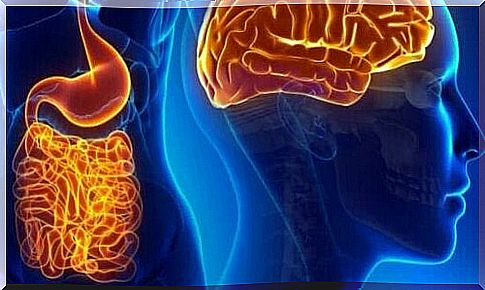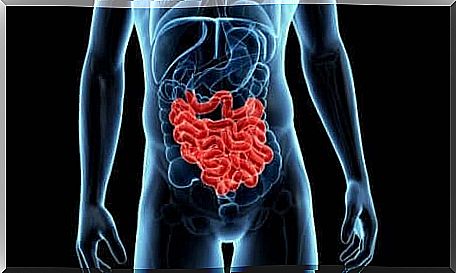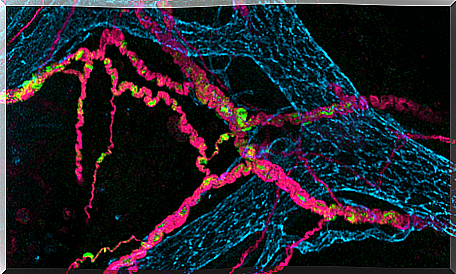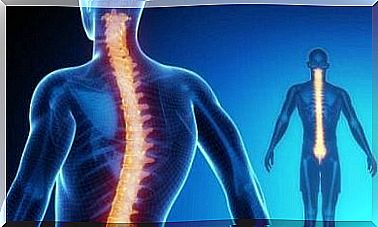The Fascinating Life Of Gut Neurons

Sometimes what happens in the human body is even more fascinating than how the universe works. The brain, for example, remains a mystery to scientists in many ways. Another endlessly complex system is the digestive system and gut neurons that do everything from setting your mood to protecting your health.
If you want to understand the importance of this ‘second brain’, take note of this information. The nervous system in your gut has up to five times more neurons than your spinal cord. This extremely complex neural network is home to hundreds of millions of neurons.
As if that weren’t enough, your gut is in constant communication with the brain, mediating important functions such as serotonin production. There is another important player in this gut-brain connection, which is the gut microbiota. This one is essential in what is still a mysterious connection between your stomach and your brain.
Thanks to modern science, we know the answers to some of the questions about the gut-brain connection. Let’s dive right in!

Your gut neurons affect your well-being and health
Gut neurons are important for your digestive, hormonal, immune and metabolic systems. They are also crucial for your psychological health. In recent years, scientists have discovered a link between certain depressive disorders and changes in your gut’s vast ecosystem.
Studies such as the one from Üsküdar University in Istanbul (English link) show that the neural network and microorganisms in your gut are crucial for the production and distribution of neuroactive substances such as serotonin and gamma-aminobutyric acid. Any problem with these systems can affect your mood.
As scientists turn their microscopes more and more into these hidden worlds, they discover amazing things about the body. For example, each of us has a complex neural network in the gut that interacts with the brain. Let’s learn a little more about this.
Why do you have neurons in your enteric nervous system?
The enteric nervous system includes the esophagus, stomach, small intestine, large intestine, etc. We know that the digestive tract and the intestines have a wide neural network.
Studies such as this one from Harvard University, published in the journal Nature , have succeeded in mapping these neurons in humans and animals.
For a long time, scientists believed that the cells of the intestinal nervous system you are born with are the same ones you have when you die.
Today we know that this is not entirely true. Some of those intestinal cells can regenerate. It is also worth noting that the enteric nervous system has multiple types of neurons.
You may wonder why humans have such a wide variety of nerve cells. The answer is simple. The cells in your gut work in tandem with the brain to protect you from disease, perform important digestive tasks, metabolic and hormonal problems, and regulate emotions.
What do gut neurons do?
The fact that your gut has over 100 million neurons makes it seem like a second brain. However, you need to understand an important aspect. The neural system in the gut does not think, reason, solve problems or write poetry. Nevertheless, it does regulate your emotional state.
The motor neurons and sensory neurons are present in the gut. They gather in two places: the mesenteric plexus and the submucosal plexus.
1. The sub-mucosal plexus or Meissner’s plexus – hormone and enzyme stimulation
This nerve cell network extends from the esophagus to the anus. It is responsible for facilitating hormone secretion, enzyme secretion and all the essential substances for digestive processes. This first network essentially performs stimulating tasks.
2. The mesenteric plexus (or Auerbach’s plexus), the chemical laboratory of the brain
Auerbach’s plexus is the most important for this system, because this group of gut neurons is the one that has a direct connection to the central nervous system. Thus, this region includes afferent or sensory neurons, interneurons, and motor neurons. Its functions are:
- Regulation of gastrointestinal movements.
- Connection to the gallbladder, the pancreas and even the lymph nodes of the cardiovascular system.
- Intestinal neurons are real chemical labs. They stimulate the production of serotonin, dopamine, opiates for pain, etc.
- This nerve network is also able to detect the presence of bacteria and initiate processes to eliminate them, such as diarrhea. It makes these decisions without having to receive instructions from the brain.
- 70% of your immune cells live in the gut.
- We know that gut neurons can respond to inflammation in gut tissue by activating immune cells.

The connection between the brain and intestinal cells
The communication between the brain and the intestinal cells is bi-directional. In other words, there is a direct and constant exchange of data through a specific neural network, which means that the messages arrive almost immediately.
In a recent study conducted by Dr. Diego Bohordez, researchers found that communication occurs through the vagus nerve, which is connected to the encephal trunk. Glutamate, a neurotransmitter, aids the process by optimizing communication between the gut and the brain.
On the other hand, scientists have found that these messages travel at a rate of 100 milliseconds, faster than a single blink. This supercommunication network allows the brain to regulate digestive, metabolic and hormonal processes.
Gut cells send up to 90% more information to the brain than the brain to the gut. Intuitively, this suggests that the enteric nervous system makes many independent decisions.
The gut neurons, along with the microbiome, are crucial for protecting us from disease and regulating our mood through the production of serotonin.
In short, we still have a lot to learn about the gut-brain connection. For example, we don’t have conclusive evidence of how the gut microbiota determines behavior. Yet every day we discover more and more, so that we can take better care of ourselves and each other.







